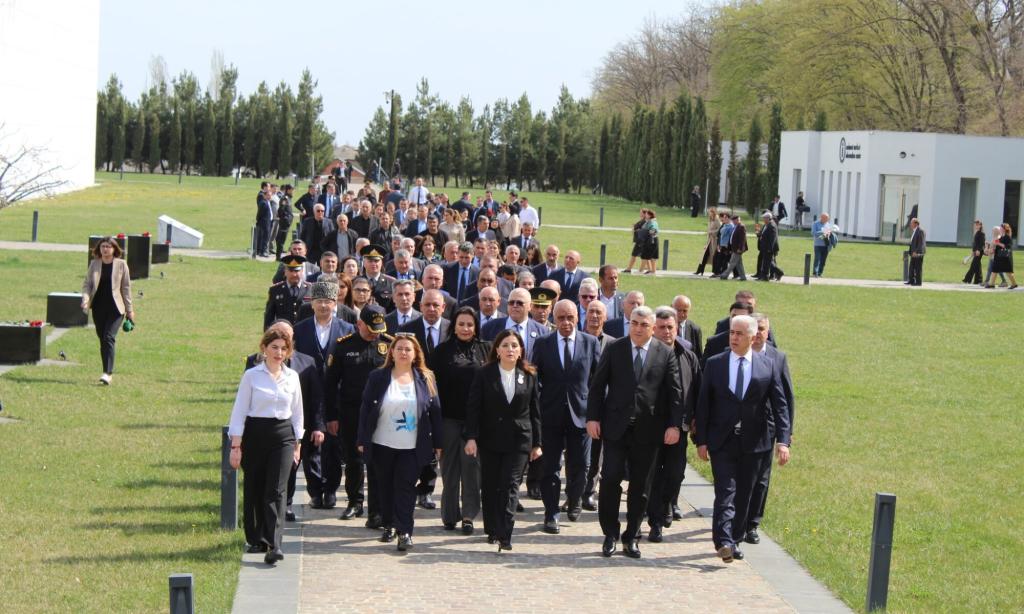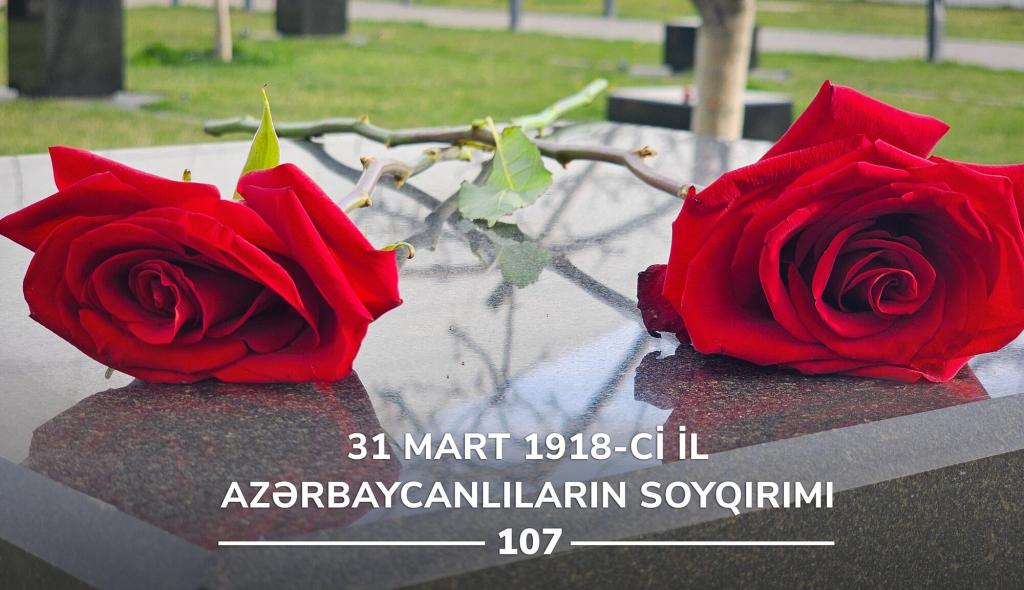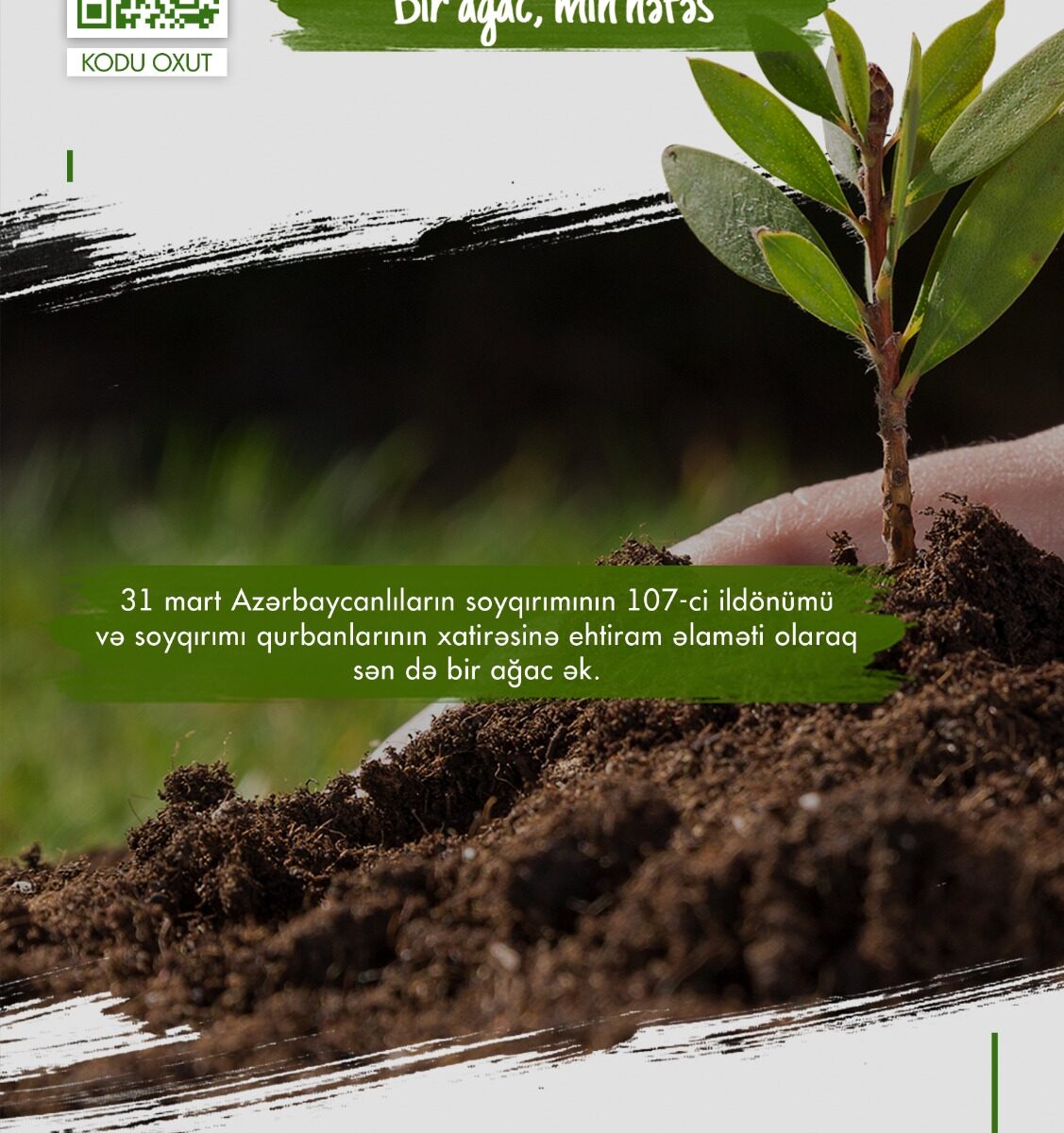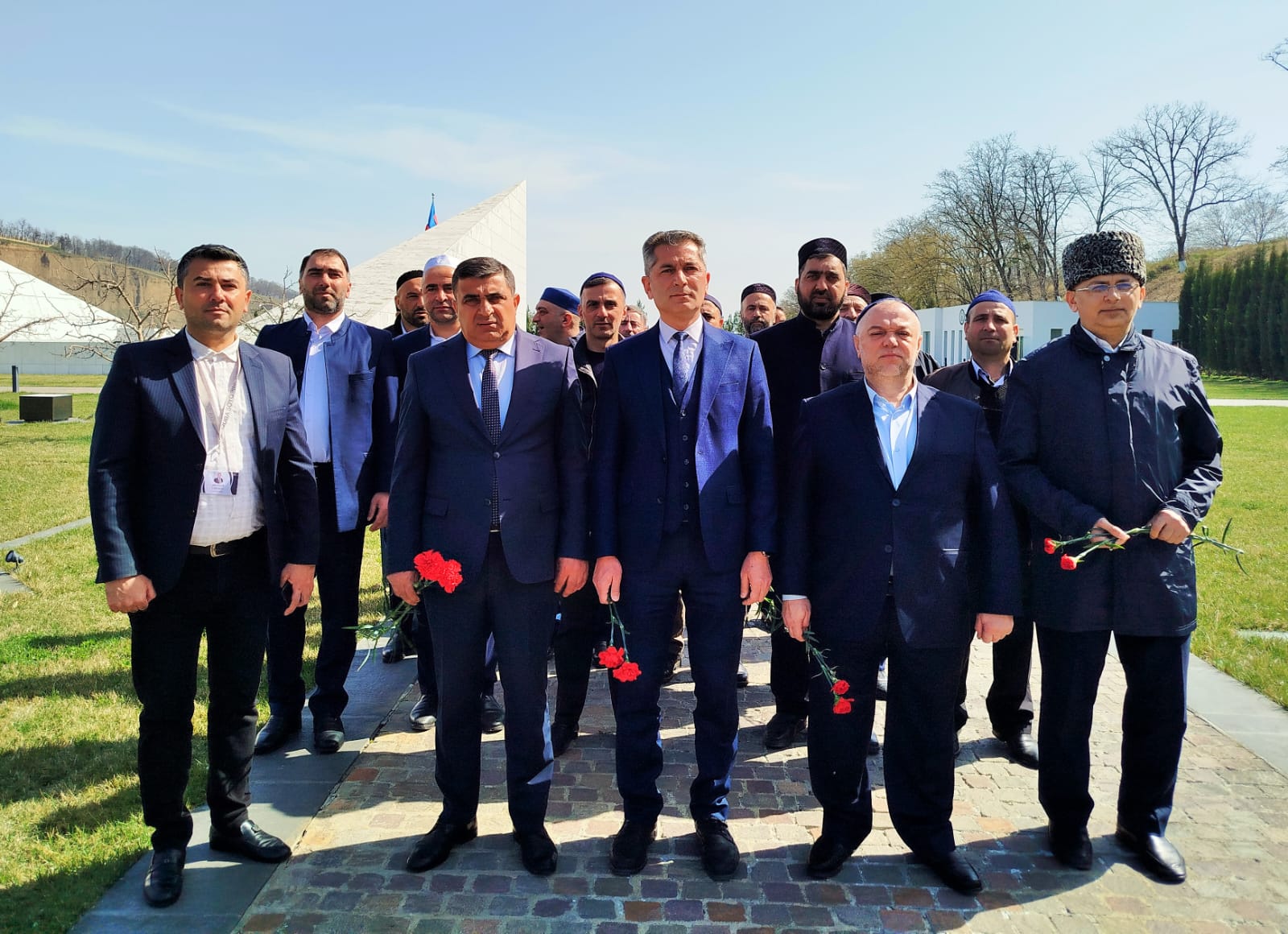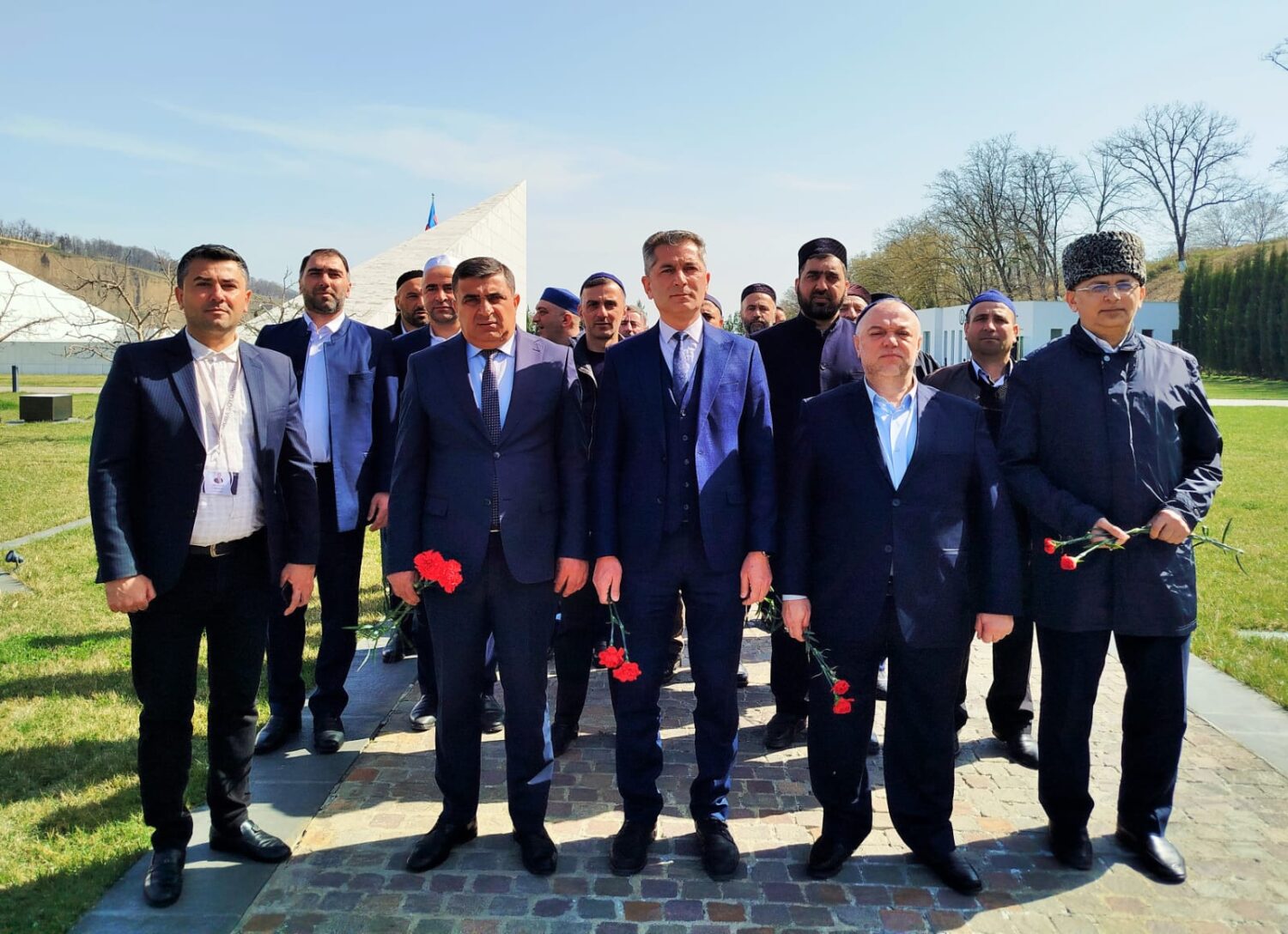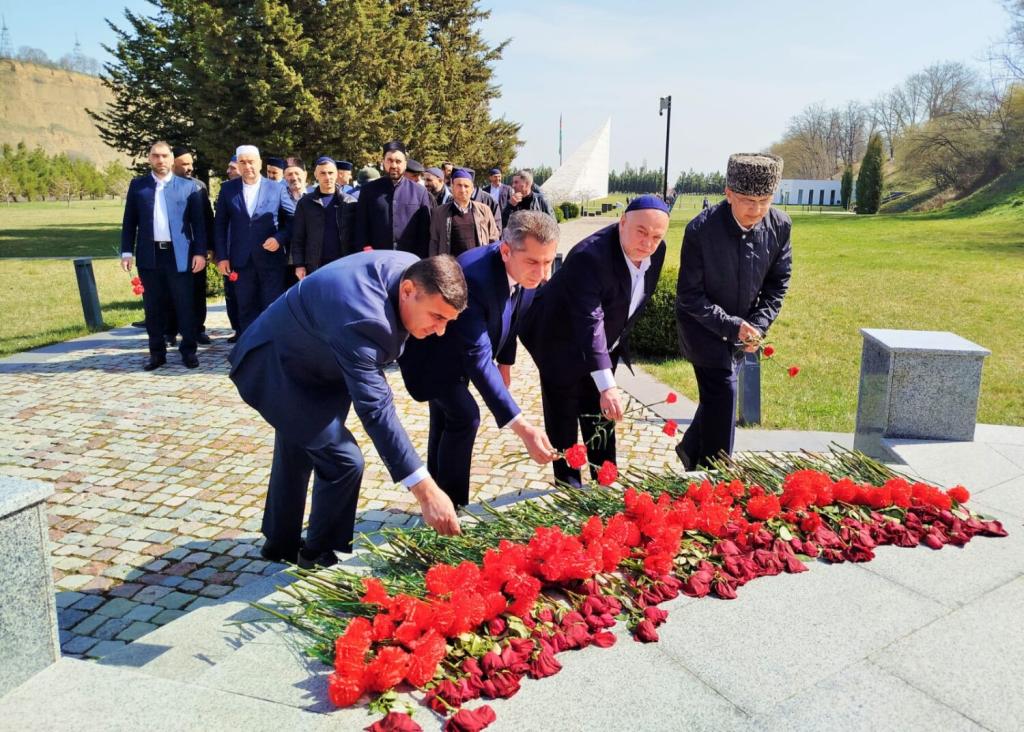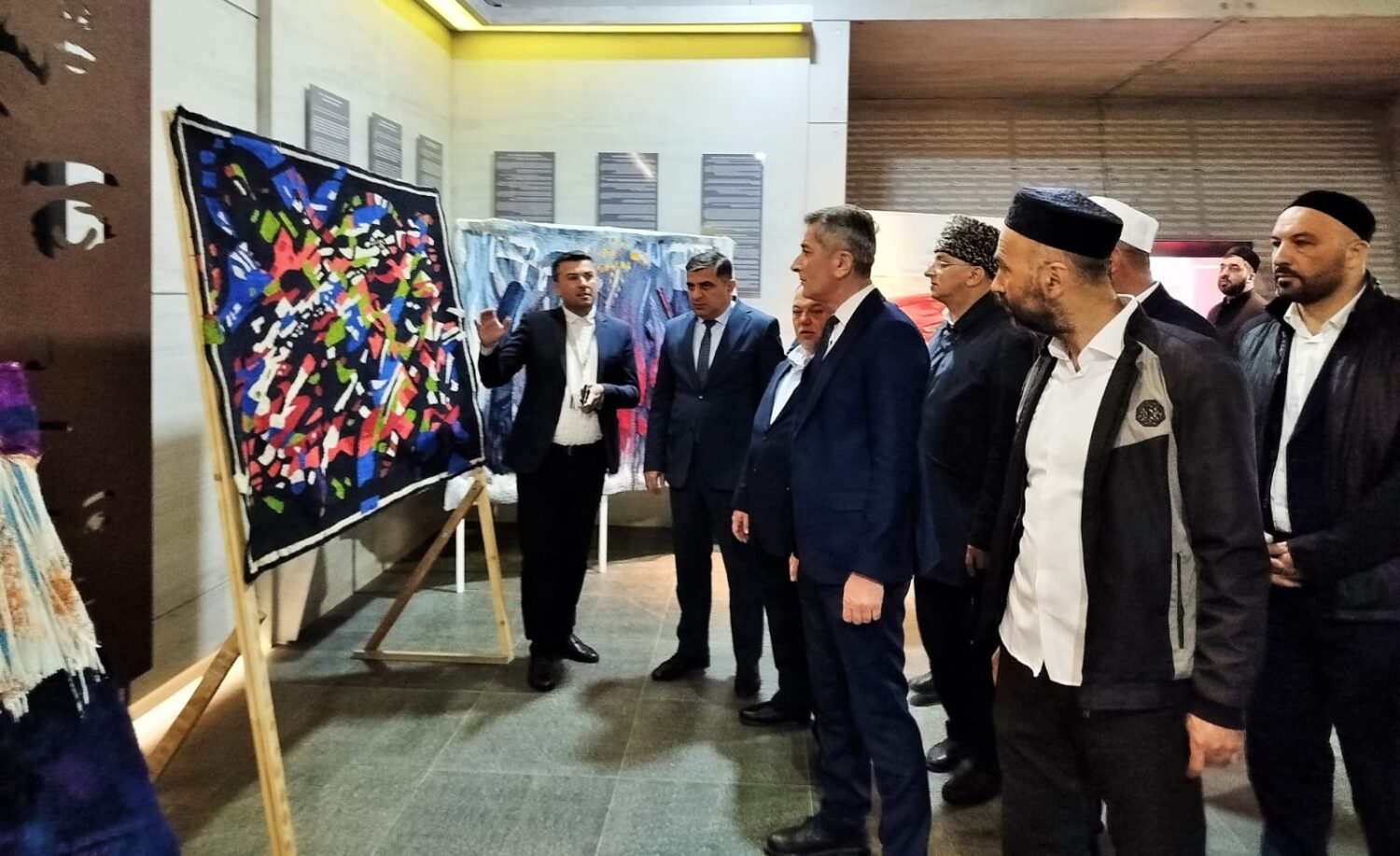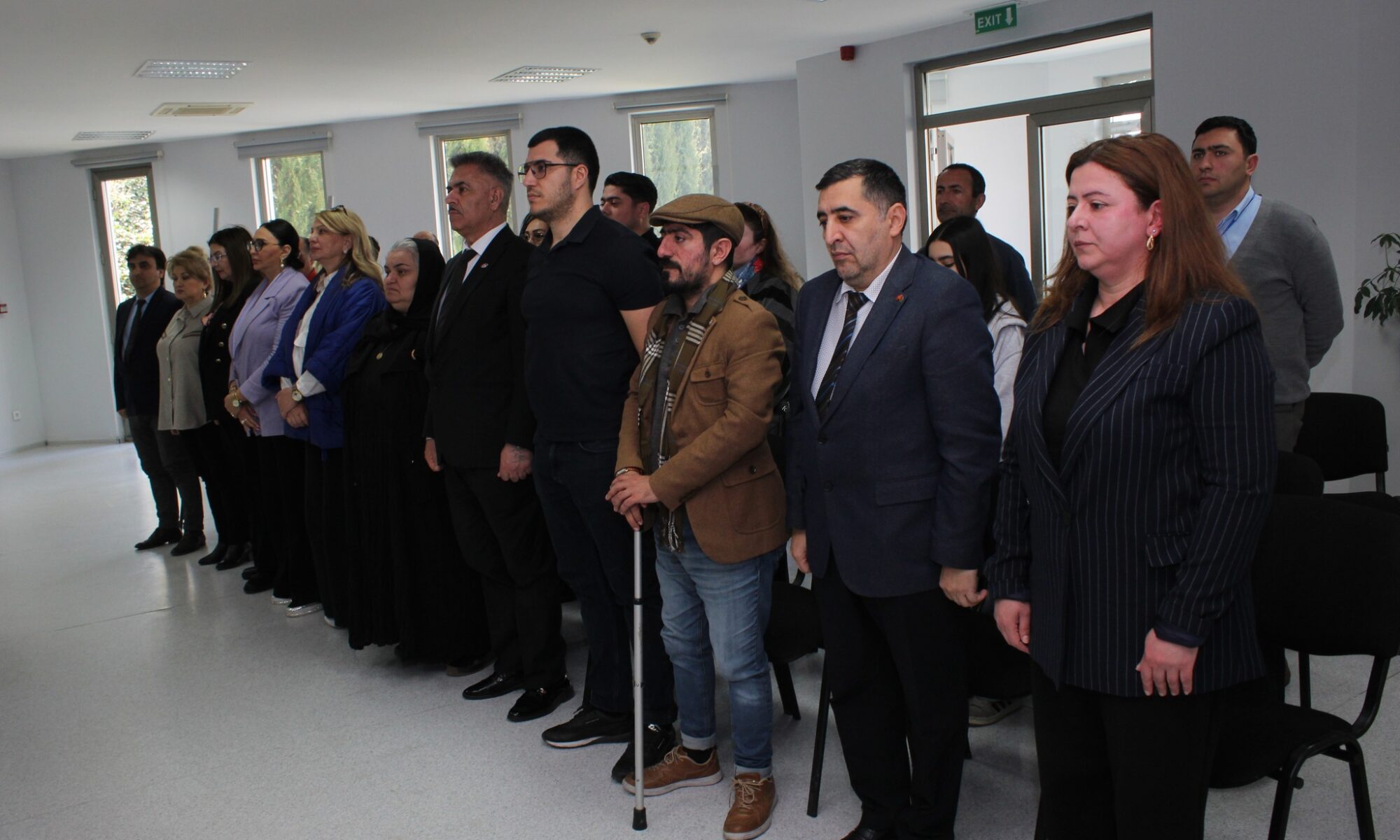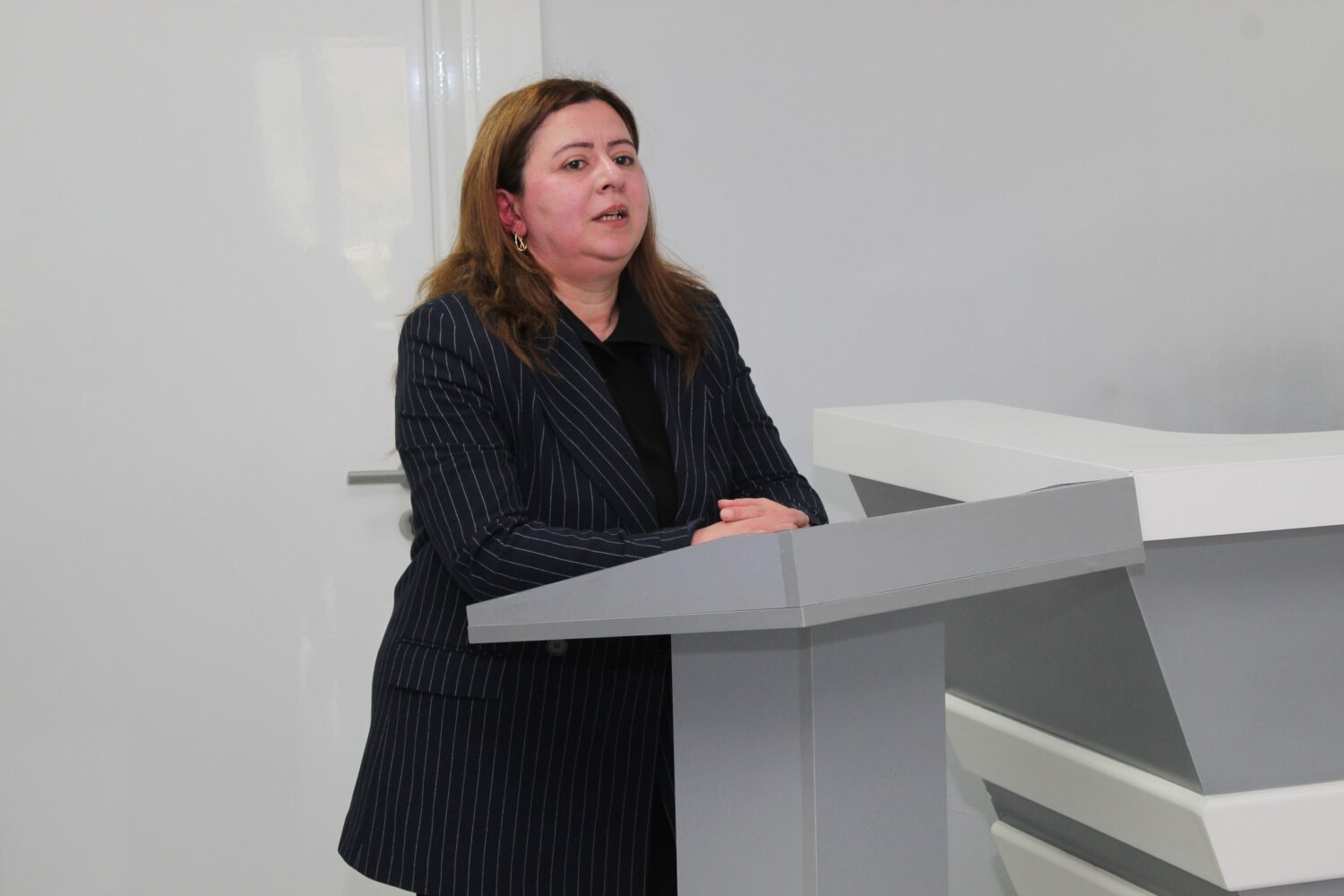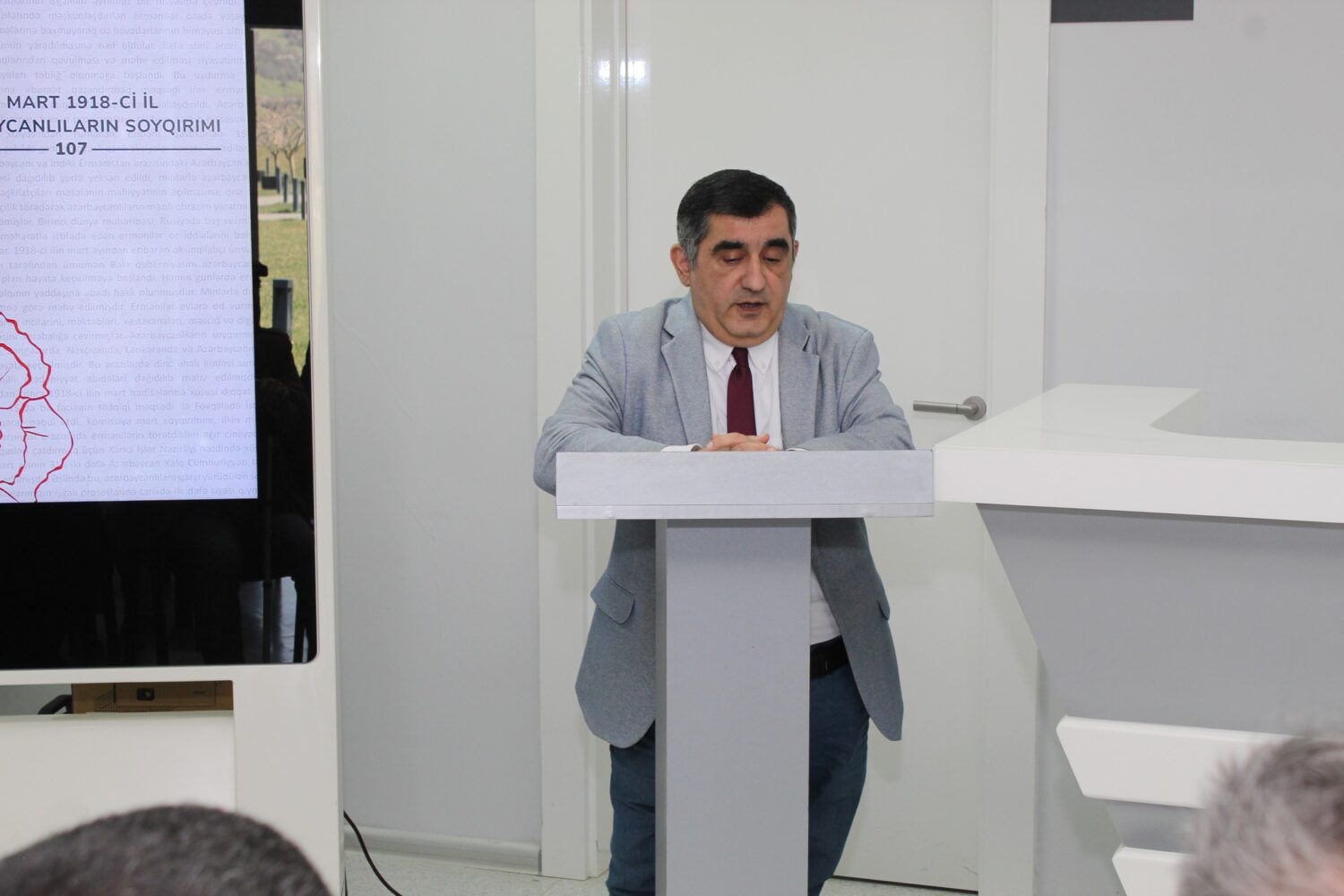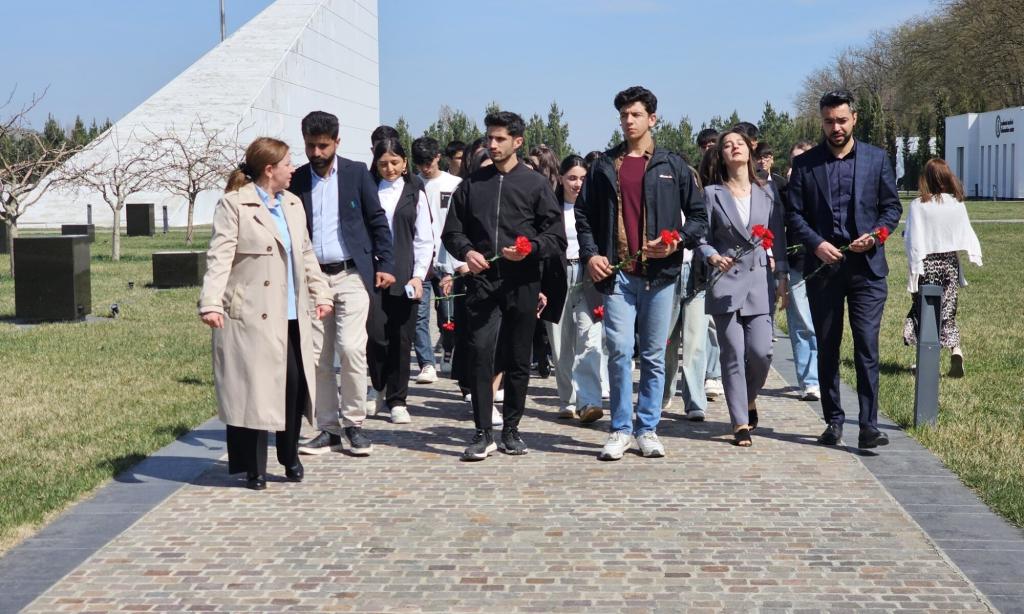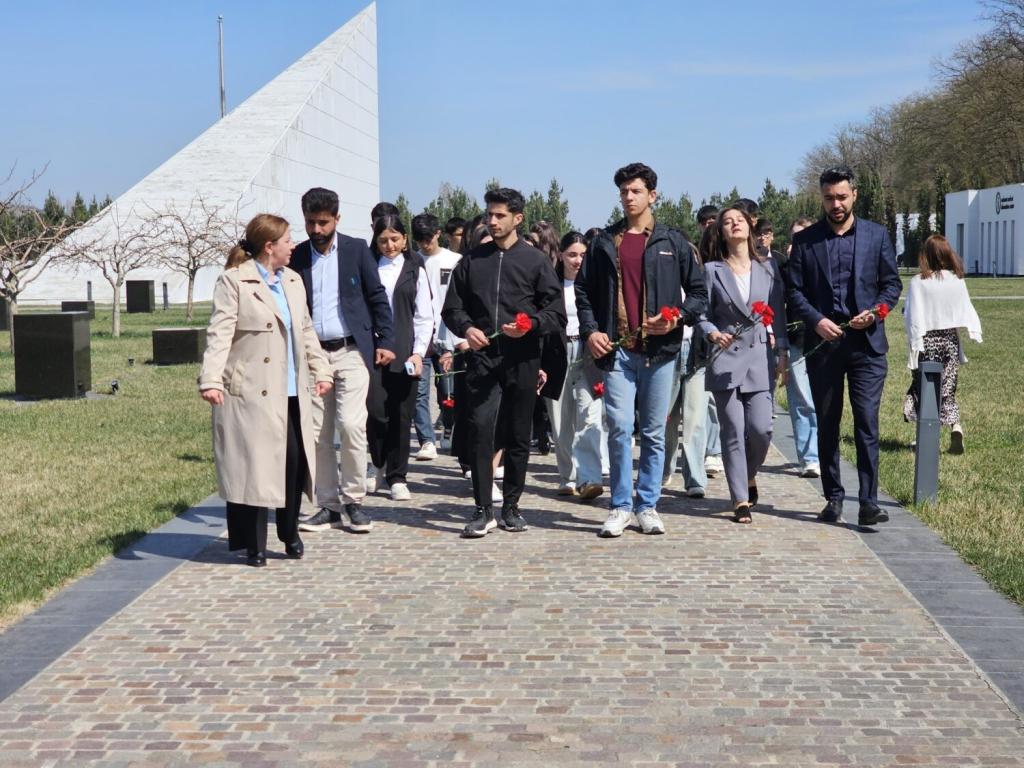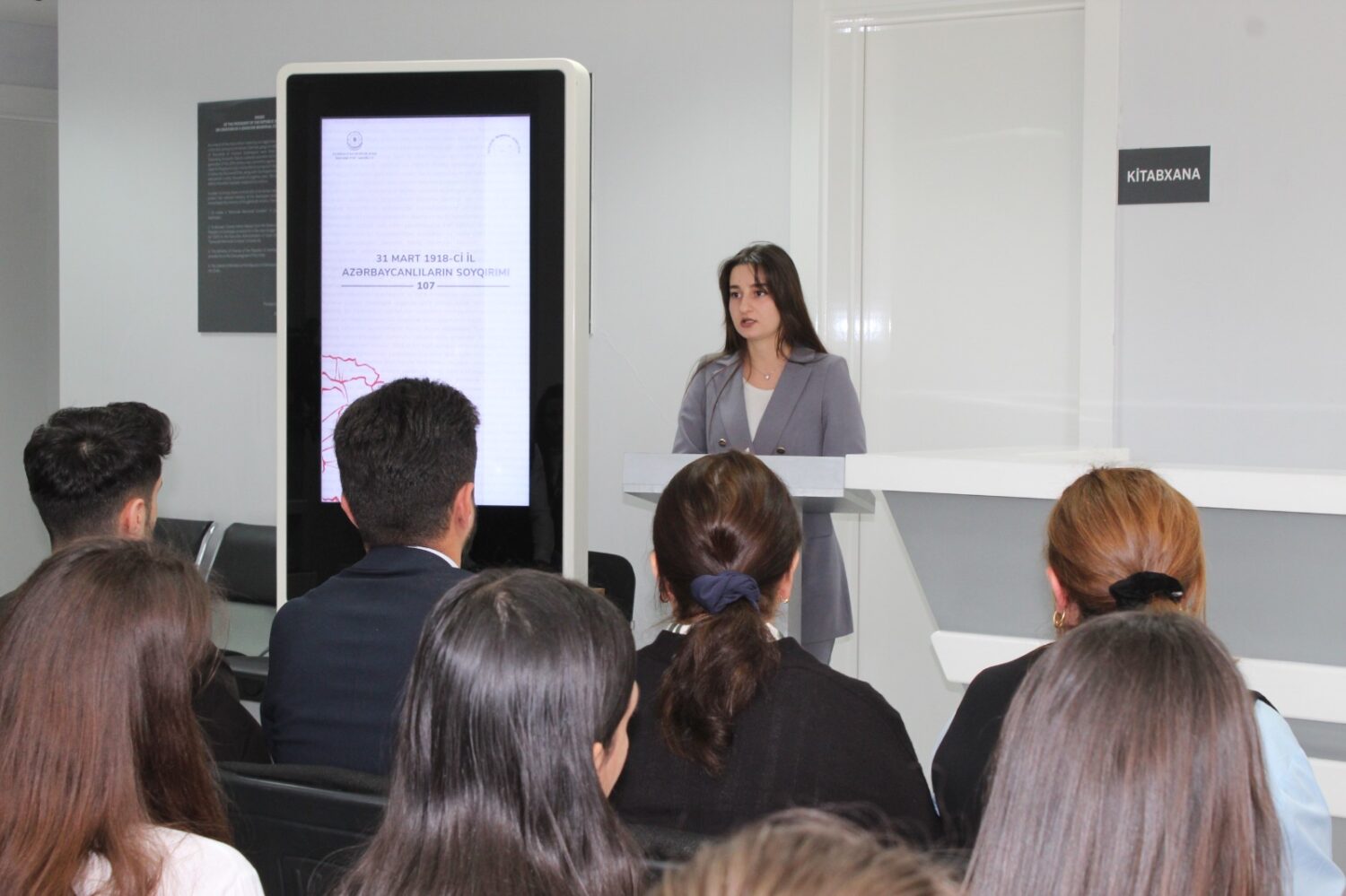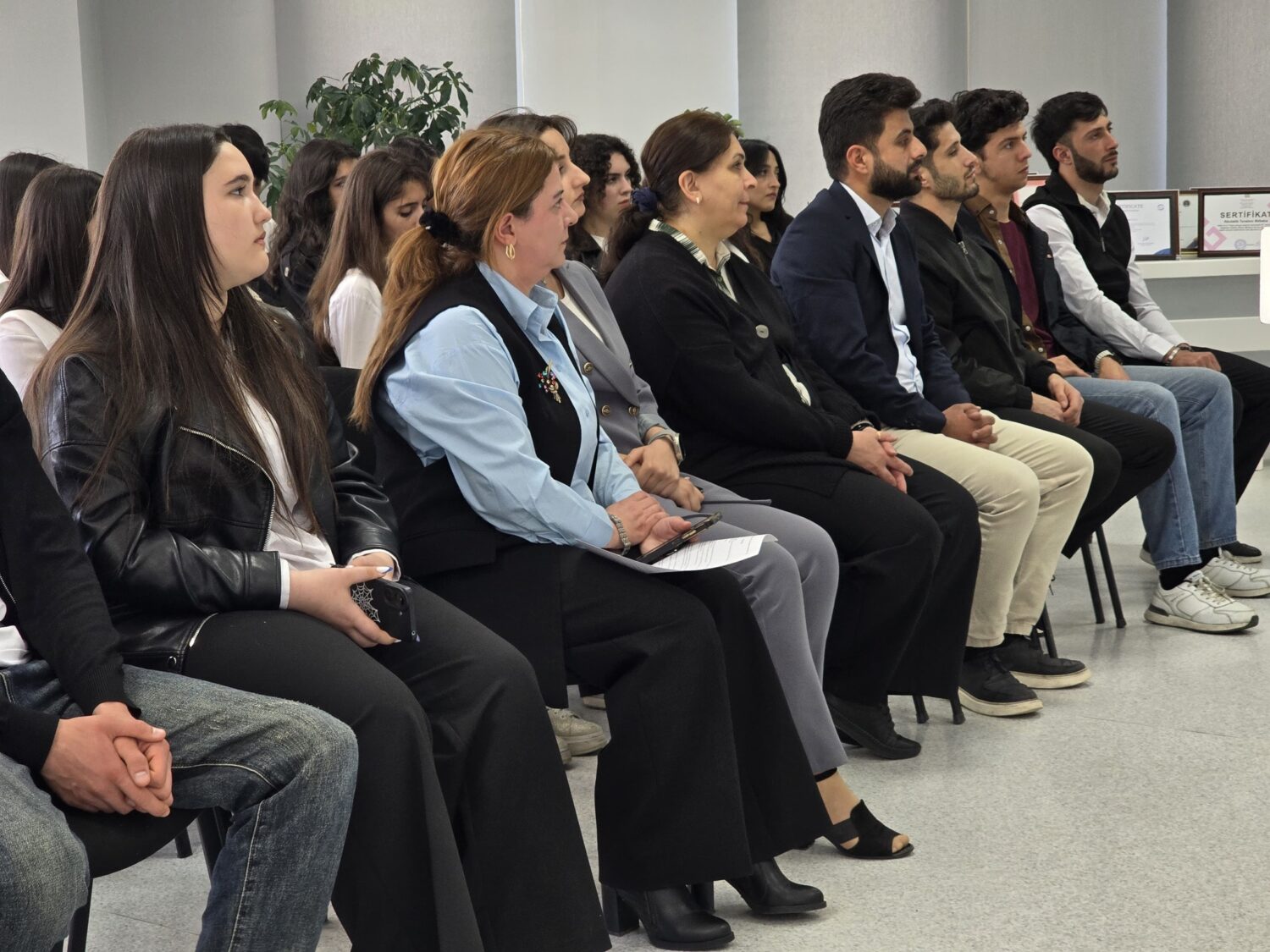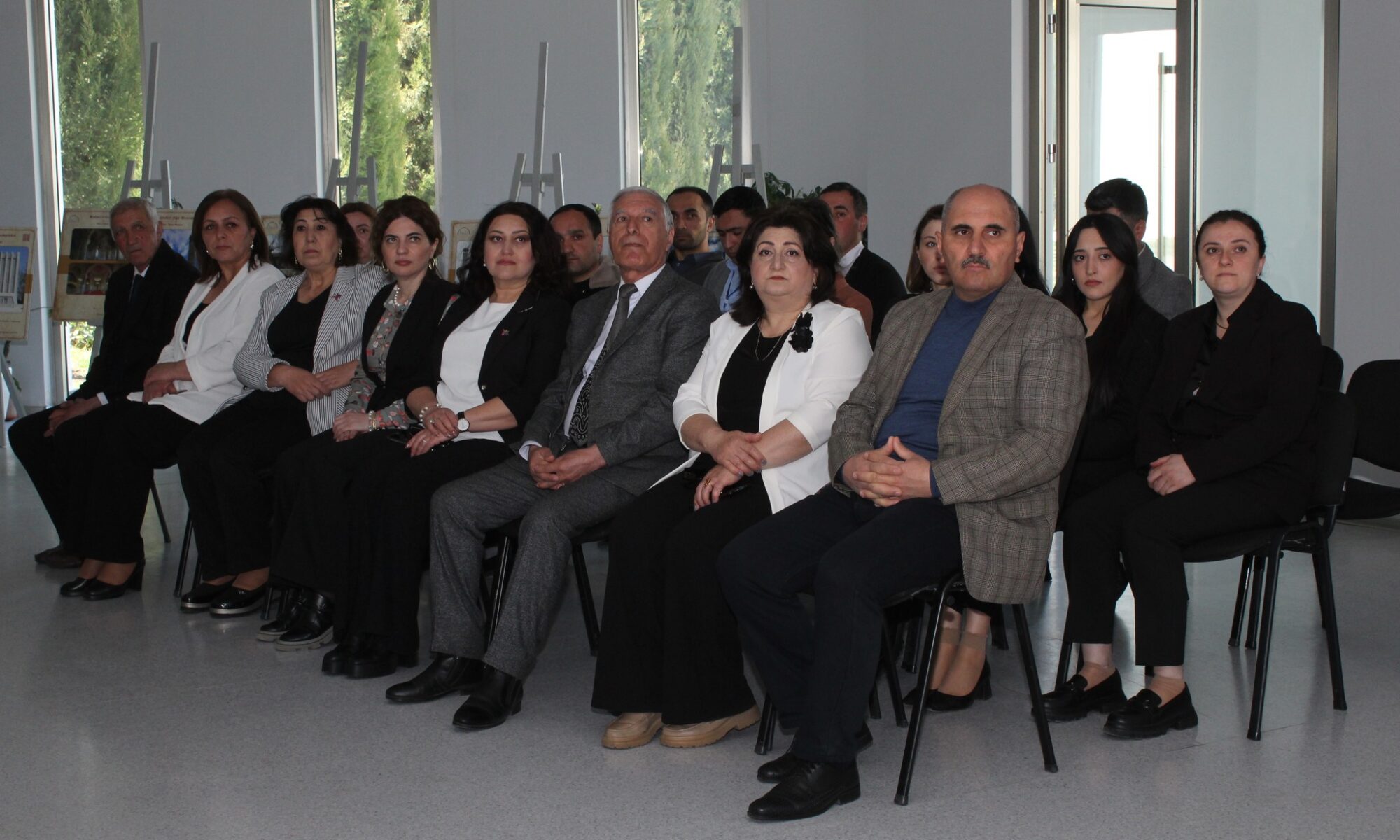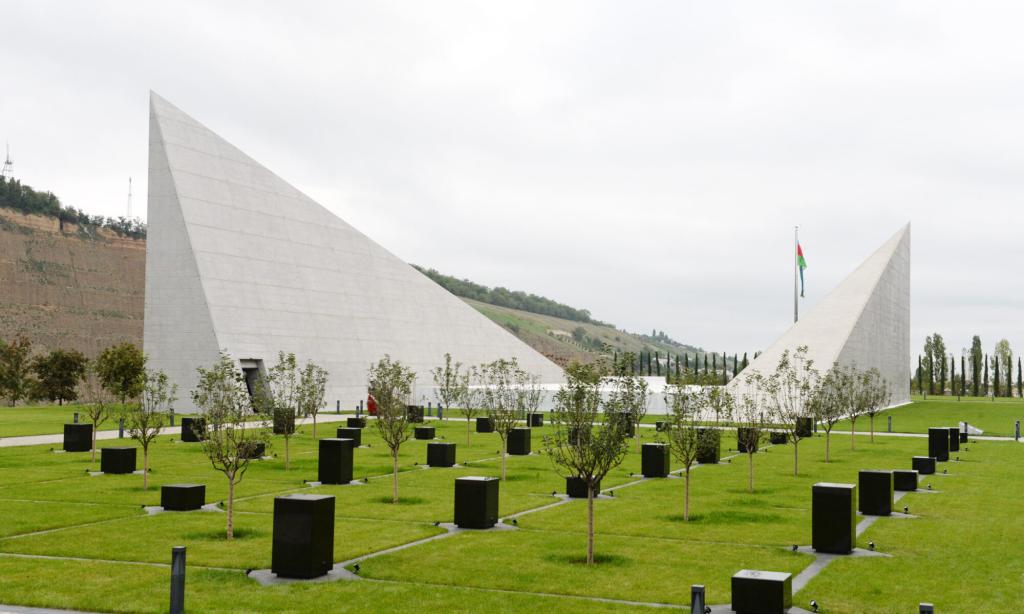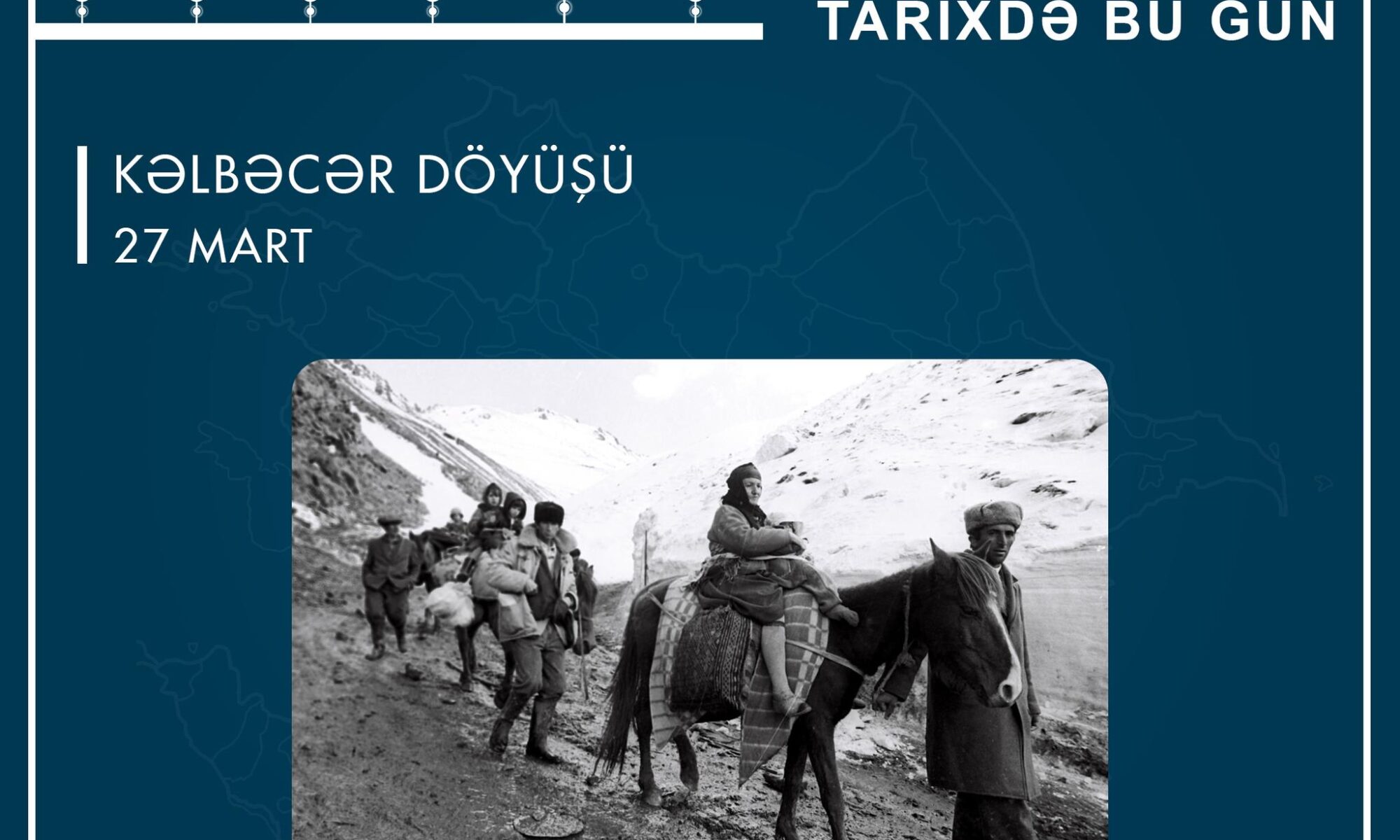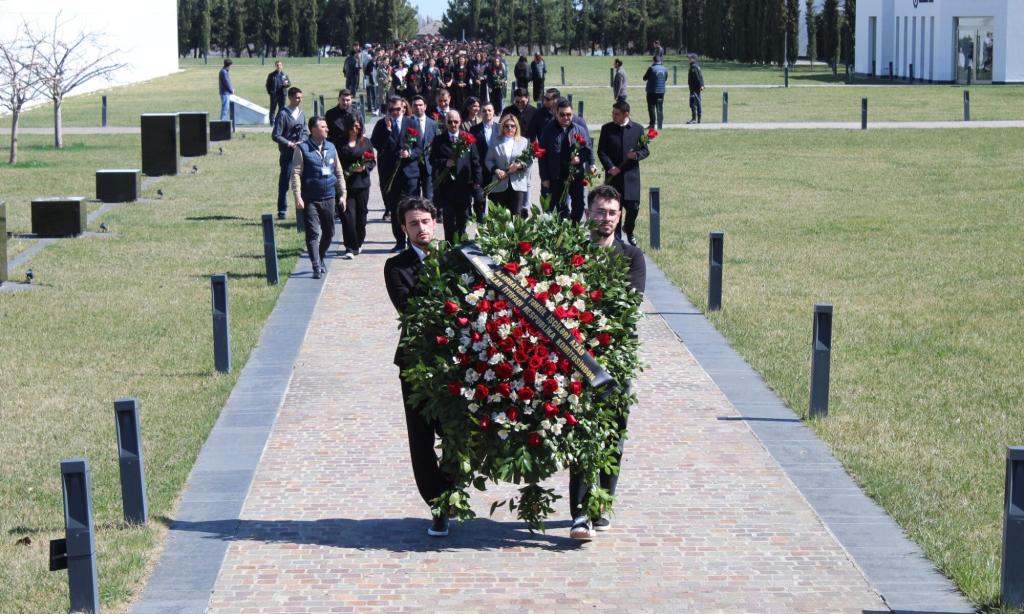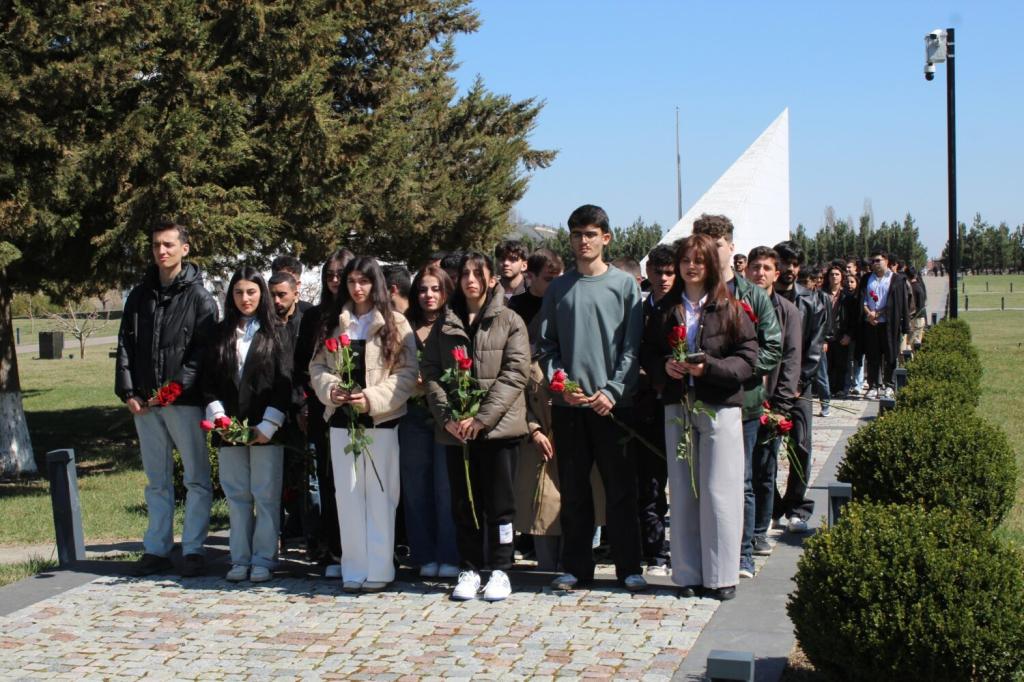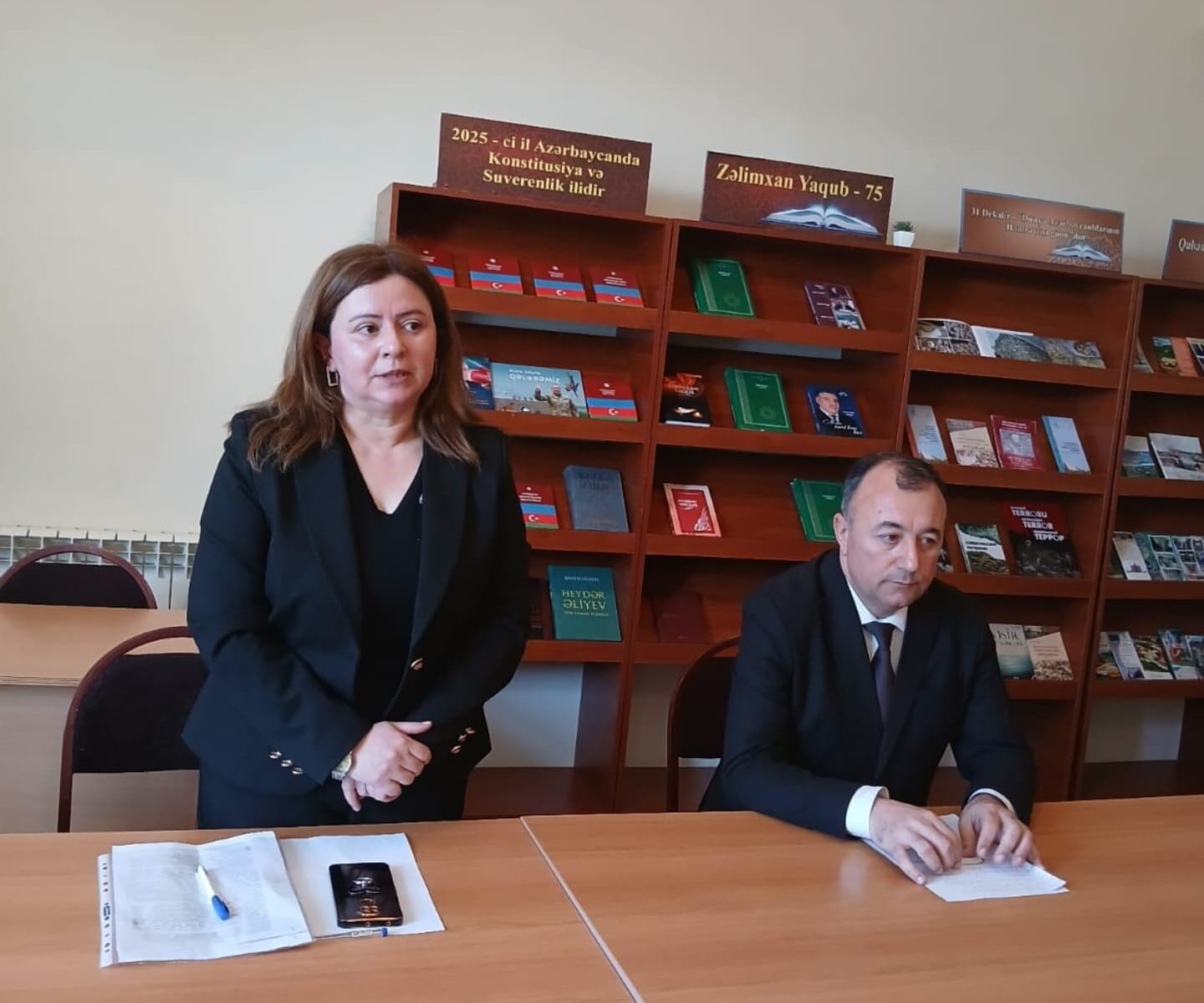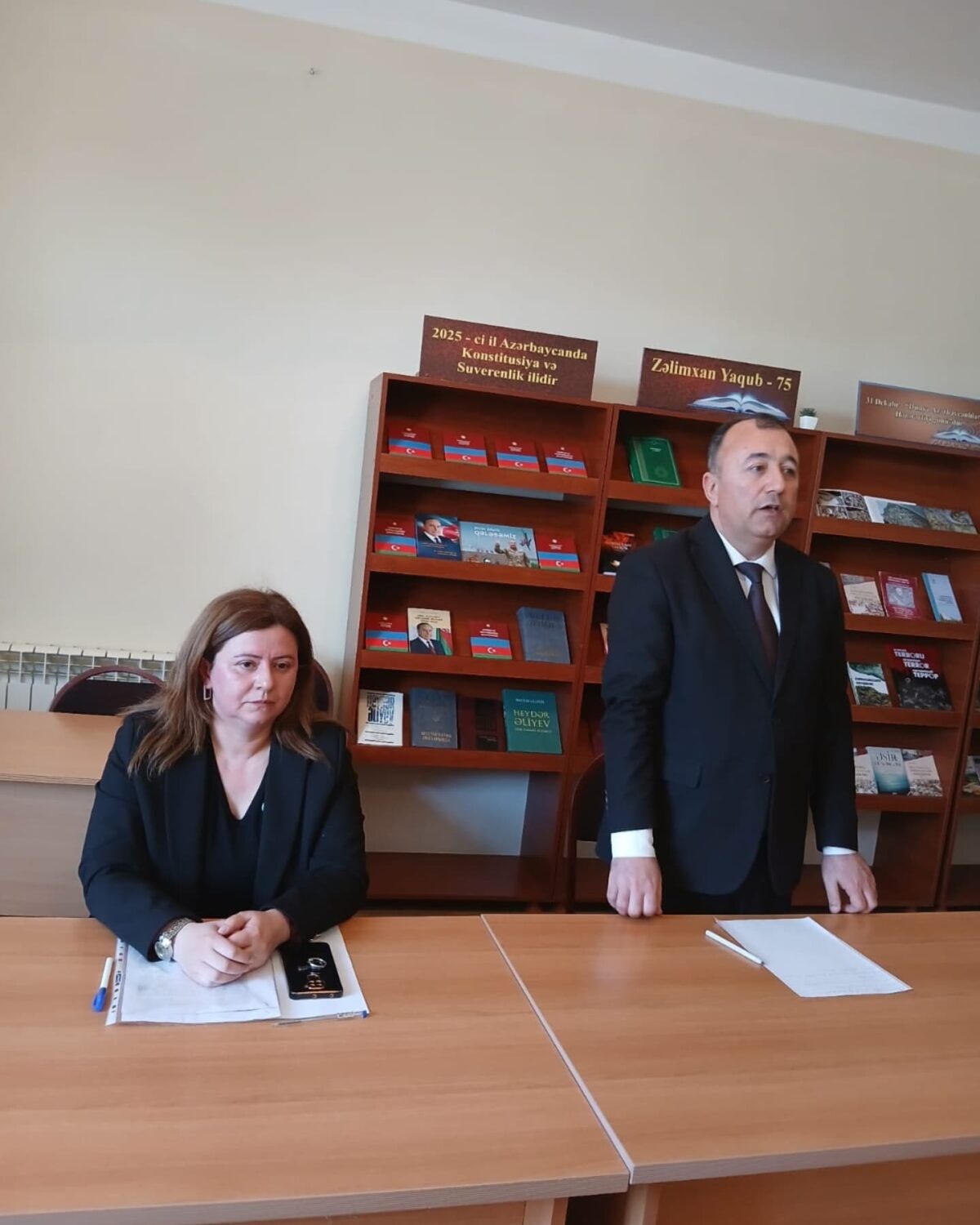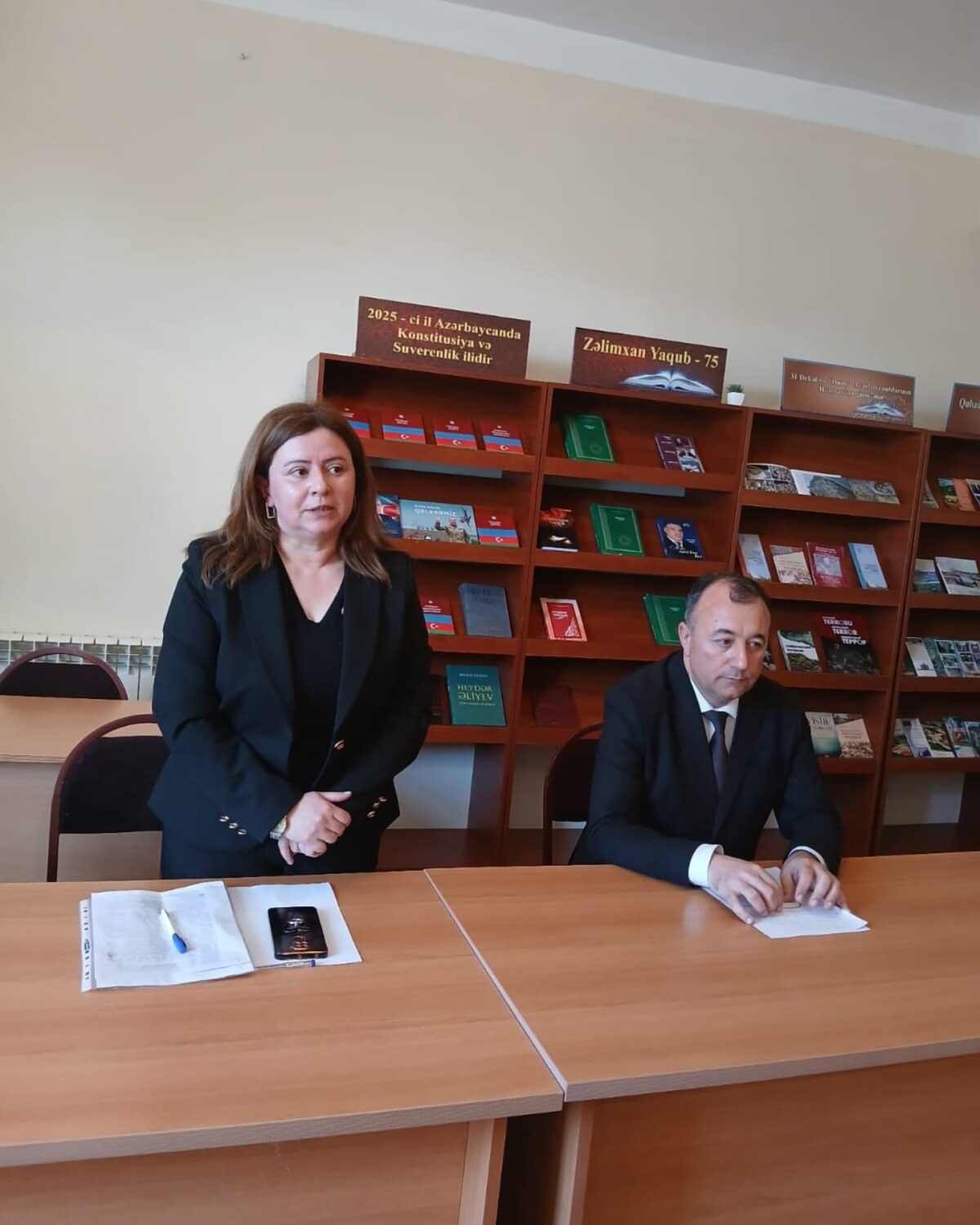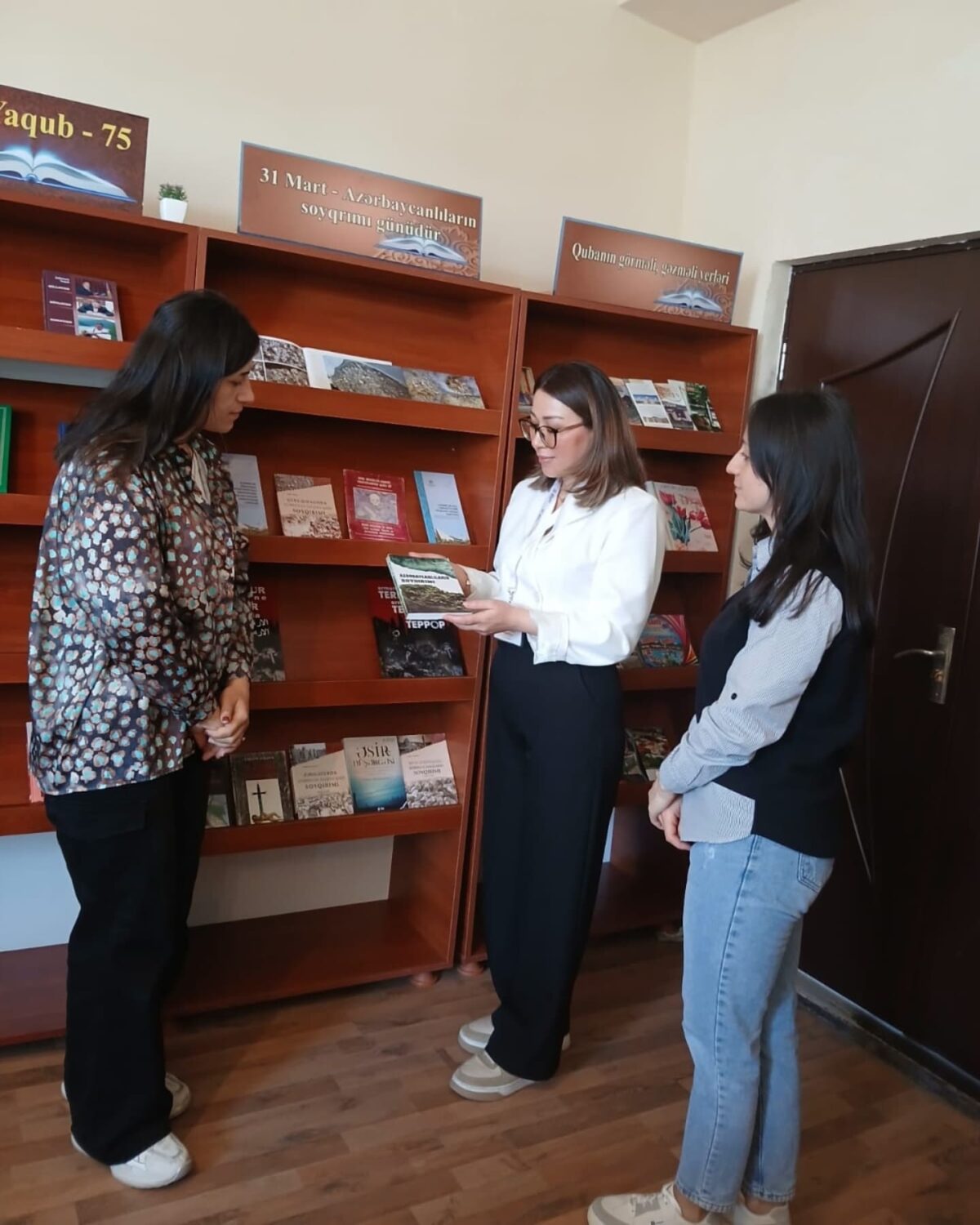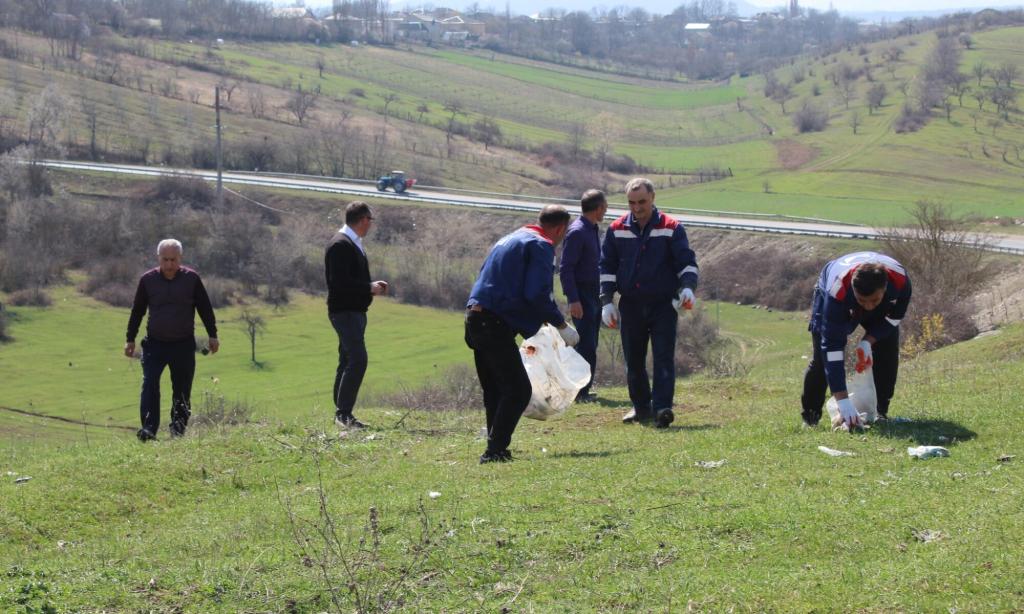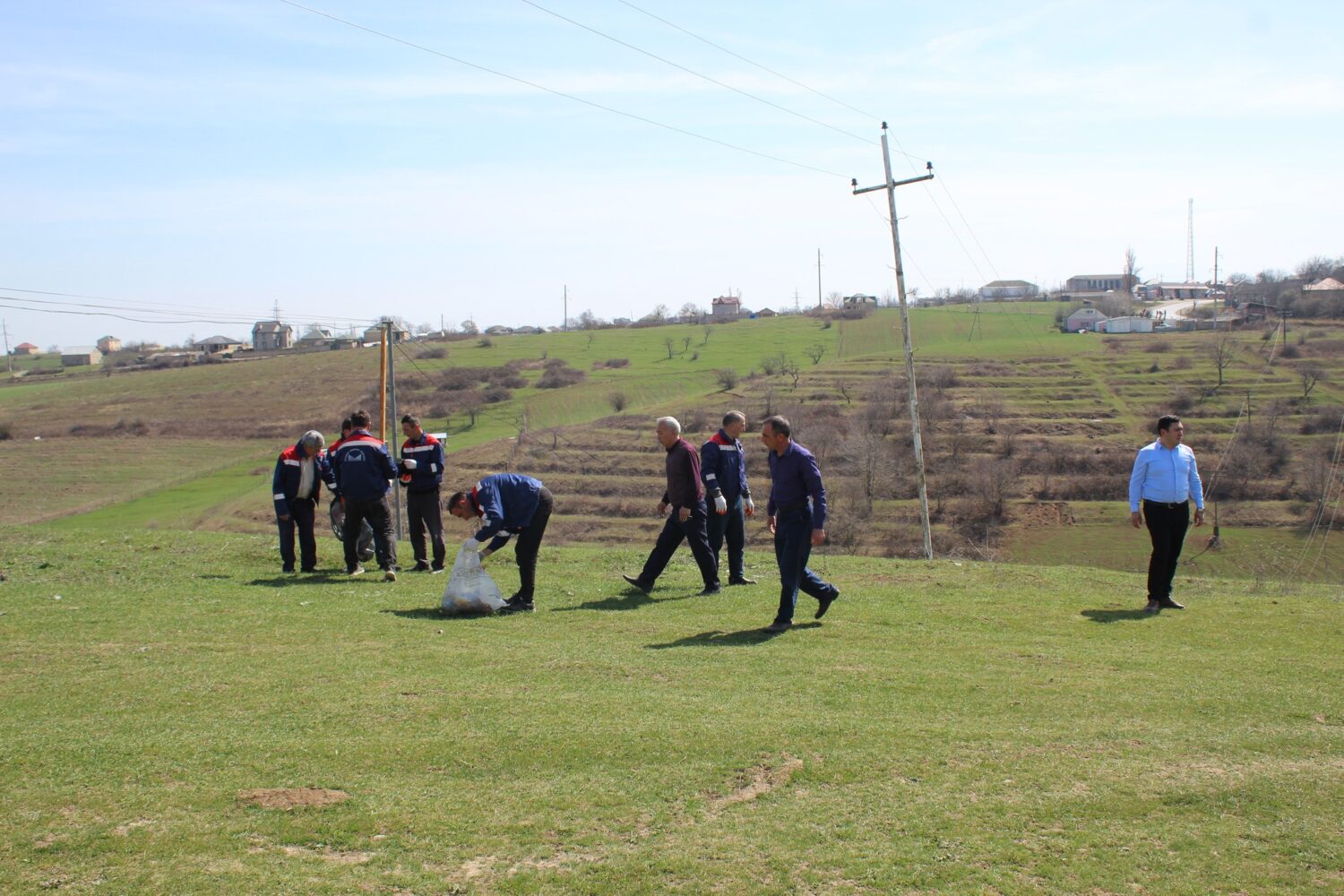






In April 2007, during repair and excavation works at the Quba city stadium, a mass grave was discovered. It was determined that the human remains found in the grave belonged to the local peaceful population who were subjected to genocide by Armenian Dashnak-bandit groups in 1918. Shortly after, based on Decree No. 673 dated December 30, 2009, by the President of the Republic of Azerbaijan, Mr. Ilham Aliyev, the “Genocide Memorial Complex” was built in Quba city with the support of the Heydar Aliyev Foundation during the years 2012–2013. On September 18, 2013, the Genocide Memorial Complex was inaugurated with the participation of President Ilham Aliyev. Over the past 12 years, more than 1 million people, including over 200,000 foreign visitors, have visited the complex. The Genocide Memorial Complex is the only ideological center in our country that reflects Armenian vandalism. The main mission of the complex is to declare the Armenian atrocities as they were and to promote the truth about Azerbaijan both locally and internationally.
In connection with the 107th anniversary of the March 31 genocide committed against Azerbaijanis, a commemorative event was held at the Genocide Memorial Complex. The event was jointly organized by the State Service for the Protection, Development, and Restoration of Cultural Heritage under the Ministry of Culture of the Republic of Azerbaijan, the Executive Power of the Quba District, and the Genocide Memorial Complex in Quba city. The head of the State Service for the Protection, Development, and Restoration of Cultural Heritage under the Ministry of Culture of the Republic of Azerbaijan, Mrs. Sabina Hajiyeva, the head of Quba District Executive Power, Mr. Ilgar Mahmudov, heads of local institutions and enterprises, as well as the district public, participated in the event.
At the beginning of the event, participants visited the monument of the National Leader Heydar Aliyev and laid flowers at the monument. Afterwards, they visited the memorial monument located within the territory of the Complex.
The participants, who became acquainted with the museum section of the complex, were introduced to the tapestry exhibition titled “Cry of the Angels”, consisting of works dedicated to the 1918 genocide of Azerbaijanis by honored artist Adil Shikhaliyev. Additionally, brochures prepared by the Quba District Executive Power in connection with the exhibition were presented to the visitors.
The participants also viewed certificates and diplomas reflecting the achievements and accomplishments of the Complex’s staff over the past year.
The commemorative event, which lasted until the evening, was attended by representatives and employees of central and local executive authorities, institutions, organizations, media representatives, students, youth, and tens of thousands of citizens.
It is worth noting that the mentioned exhibition will be on display at the Genocide Memorial Complex for a duration of two months.

